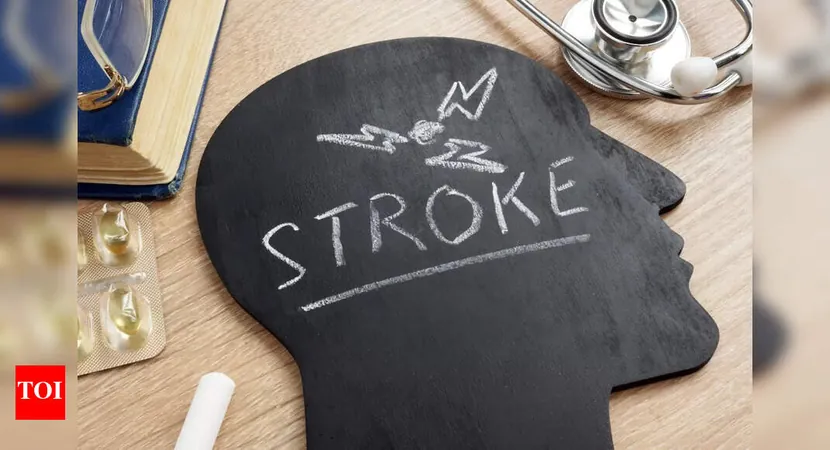
Rescuing Social Media: Insights from Harvard Experts on Rebuilding Online Communities
2024-09-17
Author: Yu
Introduction
In a recent discussion hosted by Harvard's digital life experts, the narrative surrounding popular social media platforms took a sharp turn. Initially designed to foster connections among friends and family, these platforms are now wrestling with pervasive misinformation and algorithm-driven content that frequently sows discord. Experts gathered to explore possibilities for regenerating healthier online discourse.
The Importance of Connection
“It's crucial to remember that these platforms were once havens for community and connection,” emphasized danah boyd, founder of Data & Society. “They brought together individuals — the quirky geeks, unusual freaks, and vibrant queers — seeking their tribe. The essence of these sites was relationship-building, not merely content consumption.”
Boyd, who also serves as a distinguished visiting professor at Georgetown University, joined a keynote panel entitled "Beyond Discourse Dumpster Fires," moderated by Jonathan Zittrain, a prominent figure at the Berkman Klein Center and a law professor at Harvard Law School.
Three Laws of Digital Governance
Zittrain introduced what he calls the "three laws of digital governance": First, society is unsure of its desires regarding digital interaction; second, there’s an overwhelming lack of trust in tech companies; and third, there is an insatiable demand for immediate solutions. He wittily speculated on the potential incorporation of AI to scale these solutions.
The Shift in Social Media's Purpose
Deb Roy, a media arts and sciences professor at MIT, added depth to the conversation by reflecting on the original objectives of social media technologies. From 2013 to 2017, Roy served as Twitter’s chief media scientist and noted a concerning ambiguity within the platform regarding its overarching vision. The adoption of a broadcast model for monetization, he explained, largely diverted social media from its initial mission of community and connection.
From this understanding, Roy’s team at MIT is actively developing a novel social network that prioritizes meaningful dialogue, an initiative currently being trialed among students and faculty.
The Role of AI in Mental Health
Focusing further on youth, boyd discussed the mental health crisis exacerbated by the pandemic. She highlighted the importance of nurturing supportive relationships with positive adult figures, emphasizing that many young individuals lack these essential connections today. The pressing question arises: Could AI chatbots serve as substitutes for human interaction in times of crisis? Boyd firmly disputed that notion, stressing that, “When someone is in distress, what they genuinely need is a human being who listens. Technology cannot replicate that genuine, empathetic interaction.”
Although AI might not replace human presence entirely, some studies suggest it can still play a beneficial role. Research led by Gordon Pennycook from Cornell University demonstrated that AI tools could effectively challenge and reshape entrenched conspiracy beliefs. Utilizing DebunkBot, a conversational AI, Pennycook’s team was able to engage individuals in productive discussions, leading many to reassess their viewpoints after just a brief interaction.
Design Considerations for Social Media
In his closing remarks, Roy raised questions about the design of social media, drawing parallels with concepts from architecture. He pointed out that users often leap from the intimate privacy of personal spaces into the overwhelming chaos of public forums without any transitional experience — akin to stepping from a bedroom into Times Square.
Conclusion
As the digital world evolves, experts advocate for a return to the core values of connection and community. The insights unearthed in this Harvard discussion encourage developers, policymakers, and users alike to envisage a future where social media fulfills its original promise — a space for meaningful communication and constructive discourse. With the right strategies, social media can reclaim its status as a platform for genuine connections, potentially transforming our online interactions for the better.



 Brasil (PT)
Brasil (PT)
 Canada (EN)
Canada (EN)
 Chile (ES)
Chile (ES)
 Česko (CS)
Česko (CS)
 대한민국 (KO)
대한민국 (KO)
 España (ES)
España (ES)
 France (FR)
France (FR)
 Hong Kong (EN)
Hong Kong (EN)
 Italia (IT)
Italia (IT)
 日本 (JA)
日本 (JA)
 Magyarország (HU)
Magyarország (HU)
 Norge (NO)
Norge (NO)
 Polska (PL)
Polska (PL)
 Schweiz (DE)
Schweiz (DE)
 Singapore (EN)
Singapore (EN)
 Sverige (SV)
Sverige (SV)
 Suomi (FI)
Suomi (FI)
 Türkiye (TR)
Türkiye (TR)
 الإمارات العربية المتحدة (AR)
الإمارات العربية المتحدة (AR)